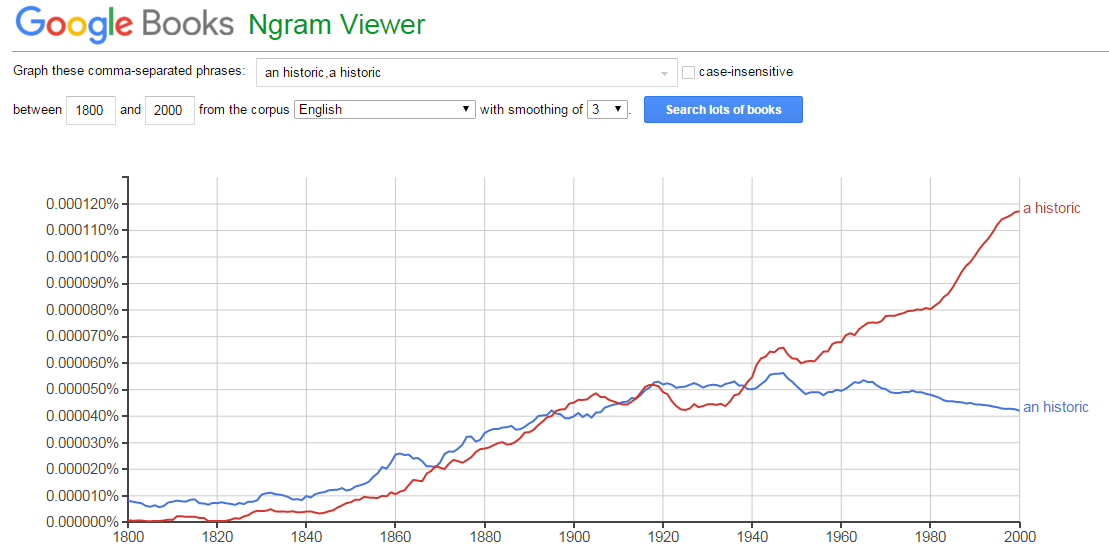A basic grammar rule is to use an instead of a before a vowel sound. Given that historic is not pronounced with a silent h, I use “a historic”. Is this correct? What about heroic? Should be “It was a heroic act” or “It was an heroic act”?
I remember reading somewhere that the h is sometimes silent, in which case it’s an, and when the h is pronounced, it’s a. But then I also remember reading that it depends on which syllable is stressed. And I also think I read somewhere that it might differ between British and American English.
Personally, I pronounce the h, and believe that a is correct. I find that it sounds incorrect to use an and pronounce heroic without the h.
So how do I know when to use a and when to use an with a word beginning with the letter h? Are both acceptable or is there one that is correct?

